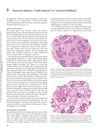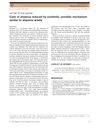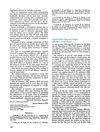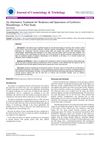Search
for
Sort by
Research
660-690 / 1000+ results
research Traction Alopecia in Two Adolescent Sikh Brothers: An Underrecognized Problem Unmasked by Migration
Two Sikh brothers developed permanent hair loss from wearing turbans tightly, a condition that became apparent after they moved to Austria.

research Senescent Alopecia (Senile Alopecia or Senescent Balding)
Senescent alopecia is a type of hair loss that occurs after age 50, not caused by genetics, and involves a gradual thinning of hair without significant inflammation.

research Rivaroxaban-Induced Hair Loss
Rivaroxaban may cause hair loss.

research Alopecia in a Viable Phospholipase C Delta 1 and Phospholipase C Delta 3 Double Mutant
Mutations in Plcd1 and Plcd3 together cause severe hair loss in mice.

research Case of Alopecia Induced by Sorafenib, Possible Mechanism Similar to Alopecia Areata
Sorafenib may cause hair loss in a way similar to alopecia areata.

research Introducing Theory Linking Genesis of Hair Shaft Bipolarity with Arrector Pili Muscle Proximal Attachment
The document suggests that human hair has electrical charges because of a gap in nerve cell coverage that affects electromagnetic radiation.

research Trichodynia (Scalp Dysesthesia)
Many people with hair loss experience scalp pain known as trichodynia, but the causes are unclear and treatments vary.

research Types of Hairline Recession in Androgenetic Alopecia and Perceptions of Aging in Asian Males
Hairline recession makes Asian males look older, especially in mid-young age; proper hairline position can help them look younger.

research Medical Treatment of Liver Hydatidosis
Surgery is the main treatment for liver hydatidosis, but has risks; albendazole is the most effective drug but can have side effects.

research LY191704: A Selective, Nonsteroidal Inhibitor of Human Steroid 5 Alpha-Reductase Type 1
LY191704 is a compound that effectively blocks a specific enzyme involved in hormone conversion and could help treat enlarged prostate and hair loss.

research A Detailed Investigation of Hirsutism in a Turkish Population: Idiopathic Hyperandrogenemia as a Perplexing Issue
The main cause of excessive hair growth in Turkish women is Polycystic ovary syndrome, but in about one fifth of cases, the reason for high male hormone levels is unknown.

research TrichoScan: Combining Epiluminescence Microscopy With Digital Image Analysis for the Measurement of Hair Growth In Vivo
TrichoScan accurately measures hair growth and showed improved hair counts and thickness after finasteride treatment.

research Reversible Decreases of Fertility in Male Sprague-Dawley Rats Treated Orally with Finasteride, a 5α-Reductase Inhibitor
Finasteride temporarily lowers male rat fertility without affecting libido.

research Trichodynia: A Review of the Literature
Trichodynia is a painful scalp condition linked to hair loss and inflammation, often with anxiety, affecting more women and needing better treatment options.
research Detection of Human Papillomavirus Type 56 DNA in Hair Follicles in the Genital Area of a Woman No Longer Suffering from Viral Warts
HPV type 56 can hide in hair follicles even without visible warts.

research Hair Loss With Minoxidil Withdrawal
Stopping minoxidil caused significant hair loss, but regrowth occurred after resuming use.

research Spironolactone, a Classic Potassium-Sparing Diuretic, Reduces Survivin Expression and Chemosensitizes Cancer Cells to Non-DNA-Damaging Anticancer Drugs
Spironolactone may make some cancer treatments more effective by blocking a protein that helps cancer cells survive.

research Antiandrogenic Activity of Riboflavin 5′-Phosphate (FMN) in 22Rv1 and LNCaP Human Prostate Cancer Cell Lines
Riboflavin 5′-phosphate (FMN) shows potential for treating androgen-related conditions but may be limited in treating prostate cancer.

research HIV Infection Mimicking Autoimmune Disorder
A girl with symptoms like an autoimmune disorder actually had HIV and a fungal infection, which was hard to diagnose and treat, leading to her death.

research Diffuse Hair Loss Following Multiple Honeybee Stings
A woman lost her hair from stress after a bee attack and her sister's death.

research Liquid Protein Diets and Telogen Effluvium: A Case Report
A liquid protein diet caused hair loss in a young woman.

research Evaluation of Hair Surface Structure and Morphology of Patients with Lichen Planopilaris by Atomic Force Microscopy
AFM can help diagnose lichen planopilaris by identifying specific hair structure changes.

research Culprits of Medication-Induced Telogen Effluvium, Part 2
Some blood thinners and blood pressure medicines can cause hair loss, which usually starts 1 to 6 months after beginning the medication.

research Recurrent Pseudolymphomatous Reaction to Ear Piercing: 20-Year History
A woman had a rare reaction to ear piercing that caused earlobe swelling, which was best treated by removing the piercing and not re-piercing.

research Use of Clean Versus Sterile Gloves: A Microbiological Study in 10 FUE Procedures
Clean and sterile gloves showed no difference in scalp contamination during hair transplant surgery.

research Hair Transplantation
Hair transplantation is a surgical procedure to move hair to bald areas, requires good donor hair, and results show in about a year.

research Tapinarof Cream for Atopic Dermatitis: Pharmacokinetics, Systemic Exposure, and Preliminary Efficacy/Safety Results
Tapinarof cream at 1% concentration is effective and better tolerated for treating atopic dermatitis than the 2% concentration.

research An Alternative Treatment for Weakness and Sparseness of Eyebrows: Mesotherapy, A Pilot Study
Mesotherapy might help make eyebrows thicker and darker for some people.

research Influence of Nutritional Supplementation on the Treatment of Telogen Effluvium: Clinical and Digital Phototrichogram Evaluation in 60 Patients
Nutritional supplements can significantly reduce hair loss in telogen effluvium after three months.